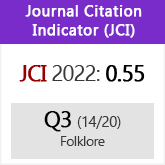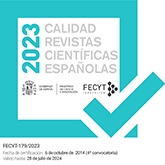Algorithms of Facial Recognition Among Food Couriers in Spain: Surveillance and Complicity with the Practices of Subleasing and Shared Use of Personal Accounts
DOI:
https://doi.org/10.3989/dra.2023.001cKeywords:
Algorithms, delivery, biometric identification, migration, facial recognition systems, irregular employmentAbstract
Research about algorithmic management in the food home delivery sector has mainly focused on the assignment of orders, and how such automated decisions affects labor conditions. However, food delivery companies have also implemented algorithmic calculations with other goals, mainly to deal with the so-called «black market of delivery accounts». Facial recognition systems have been put in place in order to target «identity fraud», searching for those riders working under applications not of their own. This paper, based on a multi-situated ethnography in different Spanish cities, deals with the growing phenomenon of subleasing and sharing personal accounts, a generalized practice among migrant riders with diverse administrative situations. Concretely, we engage the context of emergence, inner workings, and network effects of the facial recognition systems implemented by two key companies, Glovo and Uber Eats. This preliminary analysis reflects upon the paradoxical development of the efficient algorithmic system of biometric identification within the food delivery sector in Spain.
Downloads
References
Altenried, Moritz. 2021. «Mobile Workers, Contingent Labour: Migration, the Gig Economy and the Multiplication of Labour». Environment and Planning A: Economy and Space 0: 1-16. https://doi.org/10.1177/0308518X211054846
Benjamin, Ruha. 2019. Race after Technology: Abolitionist Tools for the New Jim Code. Medford, MA: Polity. https://doi.org/10.1093/sf/soz162
Browne, Simone. 2015. Dark matters: on the surveillance of blackness. Durham: Duke University Press. https://doi.org/10.1515/9780822375302
Cano, Melissa Renau, Ricard Espelt y Mayo Fuster Morell. 2021. «Flexibility and Freedom for Whom? Precarity, Freedom and Flexibility in on-Demand Food Delivery». Work Organisation, Labour & Globalisation 15(1). https://doi.org/10.13169/workorgalaboglob.15.1.0046
Gates, Kelly A. 2011. Our Biometric Future: Facial Recognition Technology and the Culture of Surveillance. Nueva York: New York University Press.
Griesbach, Kathleen, Adam Reich, Luke Elliott-Negri y Ruth Milkman. 2019. «Algorithmic Control in Platform Food Delivery Work». Socius: Sociological Research for a Dynamic World 5 (enero): 237802311987004. https://doi.org/10.1177/2378023119870041
Introna, Lucas y David Wood. 2004. «Picturing Algorithmic Surveillance: The Politics of Facial Recognition Systems». Surveillance & Society 2 (2/3): 177-98. https://doi.org/10.24908/ss.v2i2/3.3373
Jaton, Florian. 2017. «We Get the Algorithms of Our Ground Truths: Designing Referential Databases in Digital Image Processing». Social Studies of Science 47(6): 811-40. https://doi.org/10.1177/0306312717730428 PMid:28950802 PMCid:PMC5697567
Jaton, Florian. 2021. «Assessing Biases, Relaxing Moralism: On Ground-Truthing Practices in Machine Learning Design and Application». Big Data & Society 8(1): 20539517211013570. https://doi.org/10.1177/20539517211013569
Jaton, Florian y Geoffrey C. Bowker. 2020. The Constitution of Algorithms: Ground-truthing, Programming, Formulating. Inside technology. Cambridge, Massachusetts: The MIT Press. https://doi.org/10.7551/mitpress/12517.001.0001
Jaton, Florian y Dominique Vinck. 2016. «Unfolding Frictions in Database Projects». Revue d'anthropologie des connaissances 10, 4(4): a-m. https://doi.org/10.3917/rac.033.a
Jorro, Ignasi. 2019. «El fraude en Glovo: 'Te trabajo siete días y 13 horas y te doy el 30%'». Crónica Global, mayo. Disponible en: <https://cronicaglobal.elespanol.com/business/repartidor-glovo-barcelona_248916_102.html>. Fecha de acceso: 29 nov. 2022.
Kaur, Paramjit, Kewal Krishan, Suresh K. Sharma y Tanuj Kanchan. 2020. «Facial-Recognition Algorithms: A Literature Review». Medicine, Science and the Law 60(2): 131-39. https://doi.org/10.1177/0025802419893168 PMid:31964224
Kellogg, Katherine C., Melissa A. Valentine y Angéle Christin. 2020. «Algorithms at Work: The New Contested Terrain of Control». Academy of Management Annals 14(1): 366-410. https://doi.org/10.5465/annals.2018.0174
Neyland, Daniel. 2019. The Everyday Life of an Algorithm. Cham: Springer International Publishing. https://doi.org/10.1007/978-3-030-00578-8
Neyland, Daniel y Norma Möllers. 2017. «Algorithmic IF … THEN Rules and the Conditions and Consequences of Power». Information, Communication & Society 20(1): 45-62. https://doi.org/10.1080/1369118X.2016.1156141
Noble, Safiya Umoja. 2018. Algorithms of Oppression: how Search Engines Reinforce Racism. Nueva York: New York University Press. https://doi.org/10.2307/j.ctt1pwt9w5
Sanchez del Rio, Jose, Daniela Moctezuma, Cristina Conde, Isaac Martin de Diego y Enrique Cabello. 2016. «Automated Border Control E-Gates and Facial Recognition Systems». Computers & Security 62 (septiembre): 49-72. https://doi.org/10.1016/j.cose.2016.07.001
Sanz de Miguel, Pablo, Maribel Casas-Cortés, Amaia Prieto Arratibel y Juan Arasanz Díaz. 2023. «El empleo irregular tras la Ley Rider: ¿nueva regulación, idénticas estrategias empresariales?». Revista Española de Sociología 32(3). https://doi.org/10.22325/fes/res.2023.177
Shapiro, Aaron. 2018. «Between Autonomy and Control: Strategies of Arbitrage in the "on-Demand" Economy». New Media & Society 20(8): 2954-71. https://doi.org/10.1177/1461444817738236
Smith, Marcus, Monique Mann y Gregor Urbas. 2018. Biometrics, Crime and Security. 1.a ed. New York: Routledge, 2018. | Series: Law, science and society: Routledge. https://doi.org/10.4324/9781315182056
Smith, Marcus y Seumas Miller. 2022. «The Ethical Application of Biometric Facial Recognition Technology». AI & SOCIETY 37(1): 167-75. https://doi.org/10.1007/s00146-021-01199-9 PMid:33867693 PMCid:PMC8042627
van Doorn, Niels y Darsana Vijay. 2021. «Gig Work as Migrant Work: The Platformization of Migration Infrastructure». Environment and Planning A: Economy and Space 0: 1-21. https://doi.org/10.1177/0308518X211065049
White, Nadine. 2021. «Uber demandada por algoritmo de reconocimiento facial 'racista' que bloquea trabajadores». Independent en español, oct 2021. Disponible en <https://www.independentespanol.com/noticias/negocios/uber-trabajadores-demanda-algoritmo-racista-b1936535.html>. Fecha de acceso: 29 nov. 2029.
Ziewitz, Malte. 2016. «Governing Algorithms: Myth, Mess, and Methods». Science, Technology, & Human Values 41(1): 3-16. https://doi.org/10.1177/0162243915608948
Published
How to Cite
Issue
Section
License
Copyright (c) 2023 Consejo Superior de Investigaciones Científicas (CSIC)

This work is licensed under a Creative Commons Attribution 4.0 International License.
© CSIC. Manuscripts published in both the printed and online versions of this Journal are the property of Consejo Superior de Investigaciones Científicas, and quoting this source is a requirement for any partial or full reproduction.All contents of this electronic edition, except where otherwise noted, are distributed under a “Creative Commons Attribution 4.0 International” (CC BY 4.0) License. You may read here the basic information and the legal text of the license. The indication of the CC BY 4.0 License must be expressly stated in this way when necessary.
Self-archiving in repositories, personal webpages or similar, of any version other than the published by the Editor, is not allowed.
Funding data
Ministerio de Ciencia e Innovación
Grant numbers PID2020-115170RB-I00
















